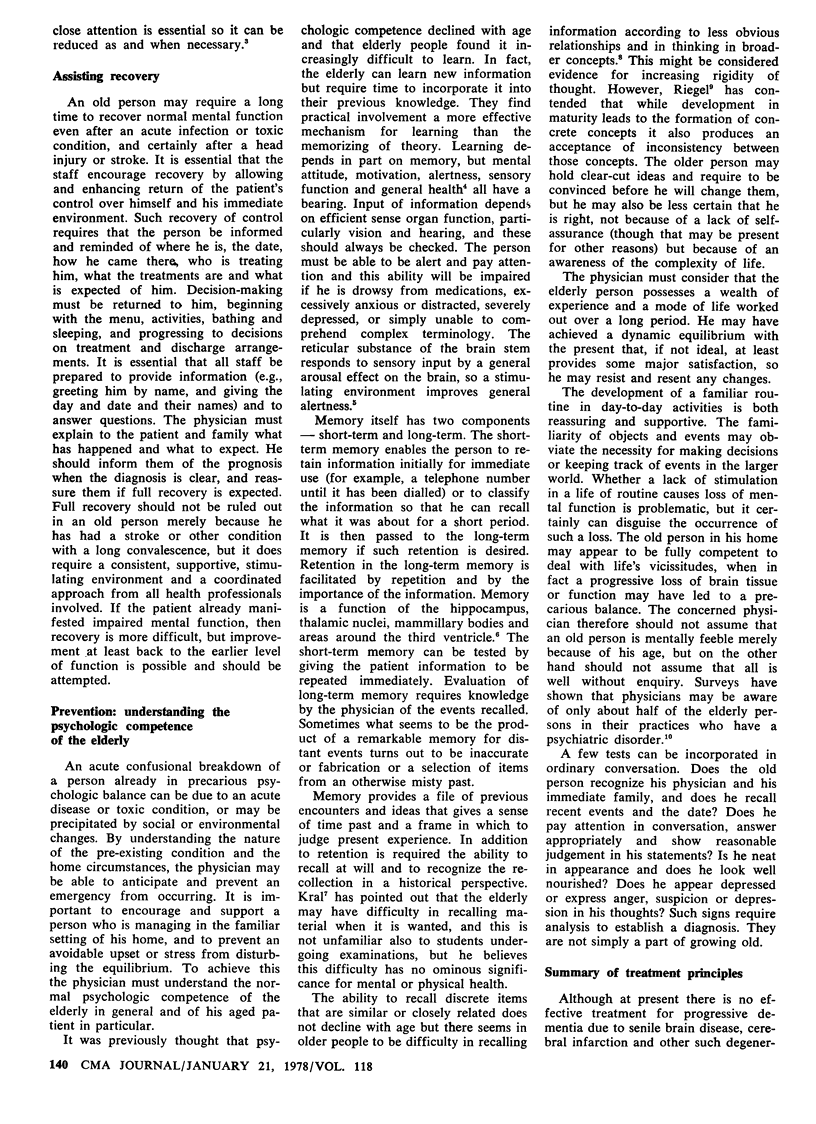Abstract
Confusional states in the elderly are not uncommon and demand a high level of diagnostic and therapeutic skills in the physician. An immediate requirement is to provide protection and care while the cause is being elucidated. Tranquilizing medication is useful but the dosage must be both sufficient for the patient to gain control and monitored to prevent overdosage. Confusion may be due to disorder in various body systems with effects on the brain, or to a primary brain disorder. Careful evaluation of general health and also of cognitive, affective and social factors is necessary to clarify diagnosis and management.
Full text
PDF


Selected References
These references are in PubMed. This may not be the complete list of references from this article.
- Bayne J. R., Caygill J. Identifying needs and services for the aged. J Am Geriatr Soc. 1977 Jun;25(6):264–268. doi: 10.1111/j.1532-5415.1977.tb00412.x. [DOI] [PubMed] [Google Scholar]
- KRAL V. A. Senescent forgetfulness: benign and malignant. Can Med Assoc J. 1962 Feb 10;86:257–260. [PMC free article] [PubMed] [Google Scholar]
- Riegel K. F. Language and cognition: some life-span developmental issues. Gerontologist. 1973 Winter;13(4):478–482. doi: 10.1093/geront/13.4.478. [DOI] [PubMed] [Google Scholar]


